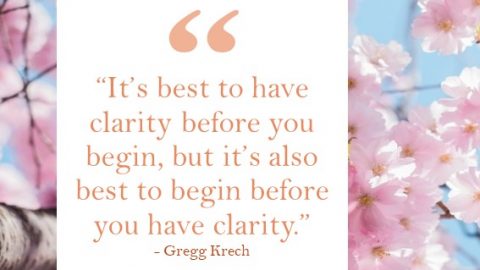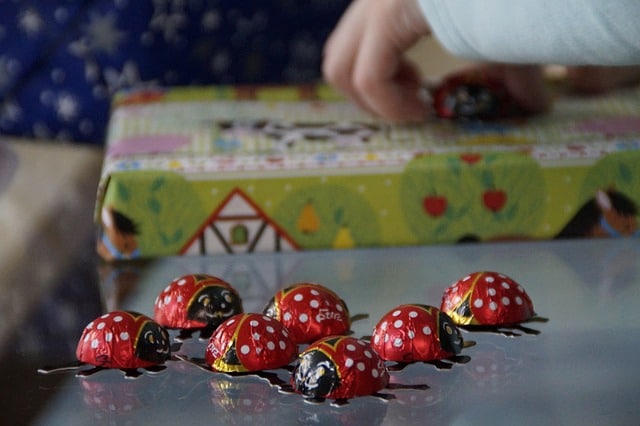by Trudy Boyle
I got the call on January 18th, 2008. I was on my lunch break. And not just any regular lunch break. It was the last day of facilitator training for a new program we were launching for cancer patients. I had been asked to participate since I would be hiring the first leaders of the program. The call came shortly after noon. I had been diagnosed with breast cancer.
Just before lunch, all the participants did an exercise where we were to draw an image of what gives us strength during a time of illness. I had a great deal of confidence in my good health as I came from a long line of people who lived long, healthy lives — well into their 90’s. I almost skipped that last exercise to run upstairs and tackle the “real” work that was waiting for me in my office. Instead, I stayed and did the exercise. The words popped up, “you are not alone.” I realized that with every challenge and difficulty that I had faced, there were always helping hands that appeared.
So, I drew a large rowboat and coloured it red. I named it “I am not alone.” I stuffed dozens of stick figures into the boat with a sun in one corner of the page and the rain and storm clouds in the other corner. The blue river of life running across the page. It appeared to have been drawn by a six-year-old.
I packed the boat, because it was clear to me that there were so many people that had helped me through life’s difficulties, many of whom I hadn’t even known. There was an emergency team that used the Jaws of Life to rescue me from the wreckage of my car. Medical professionals who treated me using tools and equipment designed by mystery inventors.
When I took that unexpected lunchtime call, it felt as if I had been struck by lightning. Someone walking by my office would have heard my heart pounding. I had to strain to hear what my doctor was telling me: Appointments 8:30 am Monday morning for a biopsy; four days later at 8:30 with the best surgical oncologist. “No time to waste.”
As I sat there, I silently wrote my eulogy, while images flashed across the screen of my mind. As the winter storm gained momentum outdoors, my shocked brain shifted gears and landed on one question: How can they diagnosis cancer from a diagnostic ultrasound before a biopsy?
Arugamama is one of my favorite Japanese words. It means something like things as they are. In other words, acceptance of reality as it is. It doesn’t imply passivity. But any action or movement has to start with the acceptance of reality. Even if reality is terrifying.
Playing an Active Role
For several months, I had been teaching a program called, Living Fully with Illness, for cancer patients. The first guideline is:
Play an active role in your own illness and treatment. Be a partner in your disease and difficulty in life.
I jumped into the fray that very night, still in shock. I went straight to the American Radiology Website to see how you could give a cancer diagnosis before a biopsy. And there it was. A #6 tumor (not stage) at that time, was listed in a chart as visually identifiable from a diagnostic ultrasound. So, it was not a mistake. The biopsy would provide the analysis of what needs to happen next for treatment.
I spent the next week researching, doing tests, making phone calls, buying books and talking to others who had my exact diagnosis. I got permission to record the meetings with my specialists. I learned a new vocabulary and what questions I needed to ask. I dove into the best resources I could find so I knew what I was up against and what my options were. I got copies of every test and every meeting and created my own file on my illness. I learned to read my pathology report after my mastectomy and assess the significance of my blood tests. I took a list of written questions to each appointment.
And this was all before I started treatment. Why go to so much trouble? From my point of view there are four important reasons why we should move from a patient to a partner in situations where we are facing a serious illness.
- When we get diagnosed with a serious illness much of our life feels out of our control. We are at the mercy of various tests and waiting for the results of those tests. Oftentimes the results of one test is inconclusive and leads to a different test and the cycle repeats itself. There are the inevitable appointments to discuss results, treatments and outcomes and to schedule surgeries, chemo or rehab. It seems endless. By playing an active role we take back a modicum of control by becoming more knowledgeable. We are better equipped for all those meetings and our medical team can see that we are engaged. A partnership develops and we learn to trust each other.
- Another facet of serious illness is the plethora of advice from every corner of your life. Everyone “knows someone” who has exactly what you have and they got cured by XYZ. When you are armed with your own research from sources you trust, you are in a better position to discern what’s best for you.
- In treating cancer, the patient ultimately decides the course of their treatment. You are presented with options coupled with statistics and recommendations. It’s up to you as the patient to choose how to proceed. You will likely have to make decisions about surgery, chemotherapy, radiation or alternative treatments. The more you know about your cancer the better you can manage these decisions.
- You may have better outcomes. Research indicates that greater patient participation – where patients are encouraged to actively participate in their treatment and considered equal partners in decision making – often leads to better outcomes.**
There is always something we can do. Inform yourself. Investigate the situation. Find out what you can do. When we act, we become change agents and also learn what lifestyle factors will bolster our immune system, minimize side effects and generally contribute to a better quality of everyday life.
The bottom line is to take action rather than passively endure the suffering we may be able to change or influence. Never underestimate the impact small steady steps can make. Those small steps can take us a long way.
By taking responsibility for our health, in partnership with our medical team, we climb out of the trap of victimhood. Then we can choose to live an active, meaningful life and continue to find joyful moments each day.
Trudy Boyle, is the program coordinator for the ToDo Institute’s Living Fully with Illness project. She is the former Program Director of Wellspring Calgary, a cancer resource center and has been working with cancer patients for 12 years and Japanese Psychology for the past 28 years. This work and her grandchildren are her ikigai – a joyful reason to get up in the morning.
**Vahdat, S., Hamzehgardeshi, L., Hessam, S., & Hamzehgardeshi, Z. (2014). Patient involvement in health care decision making: a review. Iranian Red Crescent medical journal, 16(1), e12454. doi:10.5812/ircmj.12454–













